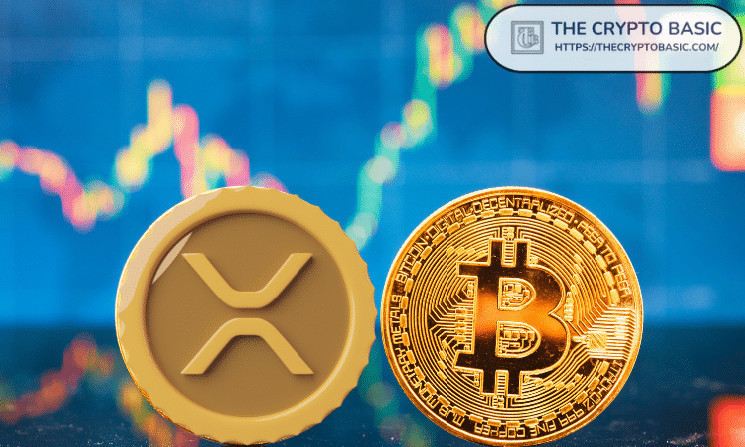Market pundit Mickle cited comments from developer Matt Hamilton as arguments for why XRP could outshine Bitcoin in the future.
In an interview on the Mr. M Podcast, Matt Hamilton, Senior Developer Advocate at Arbitrum and former Ripple developer, discussed why XRP may have a competitive edge over Bitcoin. Mickle recently shared a clip from this interview on X.
Why XRP Could Outshine Bitcoin in the Future! pic.twitter.com/C6bhELDaok
— mickle (@xrpmickle) October 20, 2024
Bitcoin Limited Despite Being a Pioneer
Hamilton discussed XRP’s superior features in comparison to Bitcoin, focusing on its scalability, energy efficiency, and practical application in financial transactions. The Cardano founder Hoskinson has also cited these to argue that Cardano is superior.
Hamilton first acknowledged Bitcoin’s importance as the first cryptocurrency. He praised the foundational principles outlined in Satoshi Nakamoto’s whitepaper, which aimed to create a decentralized financial system.
However, he pointed out several limitations of Bitcoin, particularly its slow transaction speed and energy-intensive mining process. According to Hamilton, these issues hinder Bitcoin’s ability to scale as global demand for faster and more efficient financial systems grows.
XRP Offers Faster, More Scalable Transactions
XRP was developed with these concerns in mind. Unlike Bitcoin, XRP was designed to solve scalability issues and promote quicker, cheaper transactions.
Hamilton explained that the creators of XRP, who were early Bitcoin developers themselves, recognized the challenges Bitcoin faced and sought to address them by creating a more efficient platform. This resulted in the development of the XRP Ledger.
A key benefit Hamilton highlighted is XRP’s ability to process transactions faster than Bitcoin. While Bitcoin transactions can take minutes to confirm, XRP typically completes its transactions in seconds.
Additionally, XRP is able to handle a much larger volume of transactions at a lower cost, making it more scalable and suited for global financial systems.
Environmental Concerns and Inflation
Another area where XRP outshines Bitcoin is energy efficiency, according to Hamilton. Bitcoin relies on a proof-of-work (PoW) mechanism that consumes a vast amount of electricity. Personalities such as Elon Musk have criticized the environmental impact.
By contrast, XRP uses a consensus protocol that requires significantly less energy, making it a more environmentally sustainable option. This makes XRP more attractive to businesses that are concerned about sustainability and the carbon footprint of their operations.
Regarding supply and inflation, Hamilton noted that XRP has a fixed supply, unlike Bitcoin, which is deflationary but not capped in the same way. XRP’s limited supply helps to prevent inflation, which may give it an advantage as a store of value over time.
Beyond these technical advantages, Hamilton stressed XRP’s broader use case. The XRPL is also a platform for decentralized trading and tokenization of real-world assets. The network recently attracted $1 billion in tokenized equity.
 thecryptobasic.com
thecryptobasic.com
